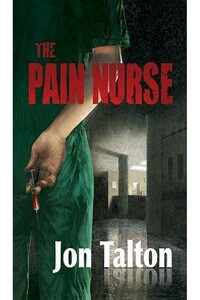Cactus Heart | страница 18
I skimmed through a detective’s report typed on a machine with a crooked r key, looking for a reason why it had taken the family so long to call police. The boys’ father, Morgan Yarnell, said he had put the twins to bed Thanksgiving night around eight o’clock. When his wife checked on them after midnight, they were gone. The grounds of the Yarnell house were searched, as were the adjoining citrus groves. At seven the next morning, Friday, November 28, Morgan Yarnell received a phone call from a man who claimed he had taken the boys. He demanded a hundred thousand dollars, deposited in a locker in Union Station. Morgan Yarnell complied, but the boys were never returned.
The reports yielded no good answer for the week’s delay. But several were signed by a detective named Joe Fisher. That was a name I had run across before. He was a legend in the Phoenix department, an investigator who had worked on all the big cases in the 1930s and 1940s. So it made sense he would pick up the Yarnell case. I unconsciously ran my fingers across the flimsy paper. Joe Fisher. This would require a trip to the Police Museum, to learn more about the man who came into the case with the impossible delay of a week.
At the bottom of one typewritten sheet, dated December 5, were the words “see officer’s observations” but I couldn’t find those pages. Damn.
Next I read the arrest report from the little border town of Douglas. It was dated December sixth. A Japanese fleet was taking its position to attack Pearl Harbor. Back in Arizona, a man named Jack Talbott was arrested for being drunk and disorderly in his Douglas hotel room. The cops found five hundred dollars on him in hundred-dollar bills, with serial numbers matching those in the bag that Morgan Yarnell had left at the train station. They also found what were described as “bloodstained children’s clothes.” A news clipping said the boys’ father identified the clothes as belonging to Woodrow and Andrew.
Next I picked through the photos to find a mug shot from the corrections department. It showed a thin, sharp-featured young man with dark hair. He had mocking, merry eyes, not the look of zombie-like disorientation common to many who face the booking camera, whatever the era.
Talbott wasn’t alone. A news story told of a young woman found with him, Frances Richie, age twenty-four. She was called his girlfriend, and charged as an accessory in the crime. She was pictured in a smart suit with a slouch fedora. Beneath the hat was a pretty face with delicate lips and large eyes. She didn’t look like Talbott’s type, but I had been wrong about that kind of thing before. After searching in vain for any police report on Richie, I set her photo next to his.





